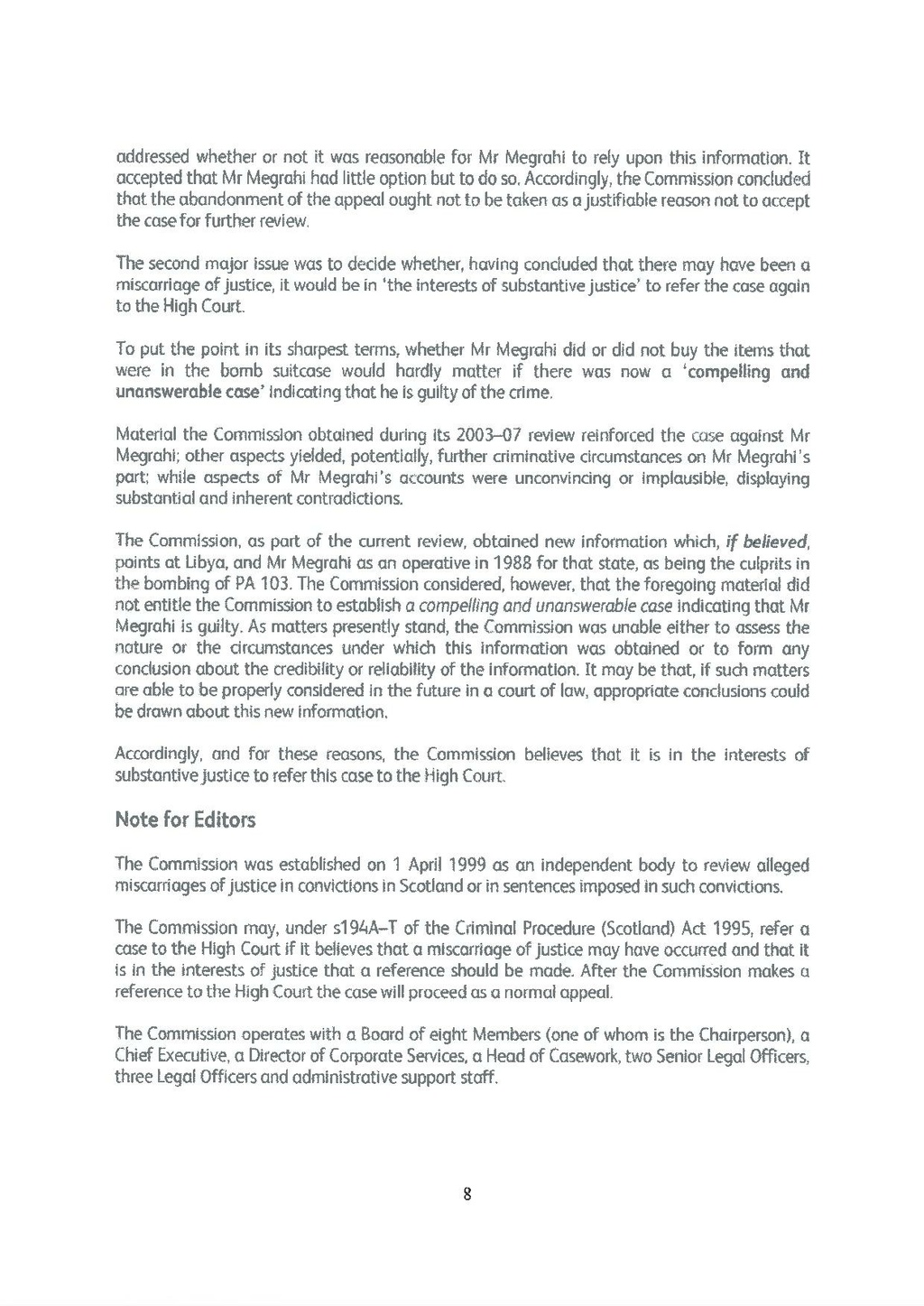addressed whether or not it was reasonable for Mr Megrahi to rely upon this information.
It accepted that Mr Megrahi had little option but to do so. Accordingly, the Commission concluded that the abandonment of the appeal ought not to be taken as a justifiable reason not to accept the case for further review.
The second major issue was to decide whether, having concluded that there may have been a miscarriage of justice, it would be in the interests of substantive justice' to refer the case again to the High Court.
To put the point in its sharpest terms, whether Mr Megrahi did or did not buy the items that were in the bomb suitcase would hardly matter if there was now a 'compelling and unanswerable case' indicating that he is guilty of the crime.
Material the Commission obtained during its 2003–07 review reinforced the case against Mr Megrahi; other aspects yielded, potentially, further criminative circumstances on Mr Megrahi's part; while aspects of Mr Megrahi's accounts were unconvincing or implausible, displaying substantial and inherent contradictions.
The Commission, as part of the current review, obtained new information which, if believed, points at Libya, and Mr Megrahi as an operative in 1988 for that state, as being the culprits in the bombing of PA 103.
The Commission considered, however, that the foregoing material did not entitle the Commission to establish a compelling and unanswerable case indicating that Mr Megrahi is guilty.
As matters presently stand, the Commission was unable either to assess the nature or the circumstances under which this information was obtained or to form any conclusion about the credibility or reliability of the information.
It may be that, if such matters are able to be properly considered in the future in a court of law, appropriate conclusions could be drawn about this new information.
Accordingly, and for these reasons, the Commission believes that it is in the interests of substantive justice to refer this case to the High Court,
Note for Editors
The Commission was established on 1999-04-01 as an independent body to review alleged miscarriages of justice in convictions in Scotland or in sentences imposed in such convictions.
The Commission may, under s194A-T of the Criminal Procedure (Scotland) Act 1995, refer a case to the High Court if it believes that a miscarriage of justice may have occurred and that it is in the interests of justice that a reference should be made.
After the Commission makes a reference to the High Court the case will proceed as a normal appeal.
The Commission operates with a Board of eight Members (one of whom is the Chairperson), a Chief Executive, a Director of Corporate Services, a Head of Casework, two Senior Legal Officers, three Legal Officers and administrative support staff.
8
